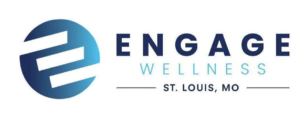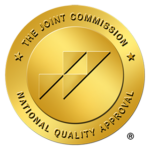Cultivating Motivation For Sustained Recovery and Personal Growth
Motivational Interviewing For Substance Abuse In St. Louis
Get and Stay Motivated With Motivational Interviewing Therapy
Motivation is like a muscle. It needs to be continually worked on and developed to remain strong and effective. When you’re struggling with substance use or mental health challenges, your ability to find the motivation you need to pursue sobriety or prevent relapse can be worse than searching for a needle in a haystack.
Motivational Interviewing for substance abuse and co-occurring disorders shows you how to connect your values with your actions and inspire the action you need to stay focused and change the course of your life. We can help you find your motivation and keep recovery in sight for life, not just today.

What is Motivational Interviewing (MI) Therapy?
Maintaining motivation is a core function of successful addiction treatment. But this doesn’t come naturally to many people. Motivational interviewing for substance abuse in St. Louis is a person-centered counseling approach that uses empathy to enhance an individual’s motivation for change and continue advancing in recovery[1].
MI therapy has a wide range of applications, but it is particularly beneficial for addressing alcohol and substance use disorders and will take place over a series of sessions within a greater treatment program. Individual MI therapy sessions would take place with Licensed Professional Counselors (LPCs), therapists, or another mental health professional.
At Engage Wellness, we want to help you create new and healthy patterns that sustain your sobriety and recovery success. Motivational interviewing for substance use disorders offers practical strategies to help you pursue your goals and be the best version of yourself.
How (and Why) Motivational Interviewing For Addiction Works
The techniques of Motivational Interviewing offer practical strategies with a person-centered and evidence-based therapeutic approach. That means the client is actively part of the process, not just a recipient. MI therapy uses open-ended questions to target ambivalence about change, increase confidence, boost a personal desire for change, elicit change talk, develop discrepancy, and reframe an individual’s approach to treatment and life[2].
The benefits of applying motivational interviewing, and why it works so well as part of substance abuse treatment, stem from a practical process that cultivates intrinsic motivation for making positive changes, achieving greater self-efficacy, and learning how to align one’s behavior with their values, avoiding a cycle of instant gratification or addiction[3].

Efficacy of Motivational Interviewing For Substance Abuse
Research suggests that person-centered counseling approaches like motivational interviewing are effective in treating alcohol use disorder (AUD) and found that several sessions improved overall treatment outcomes, including an enhanced readiness for change and less alcohol use[4].
Another study showed a significant drop in alcohol and substance use immediately after attending motivational interviewing sessions. After one to six months, participants still showed lower rates of alcohol or substance use[5].
In a 72-trial meta-analysis of the results of motivational interviewing therapy, it was confirmed that, in addition to clinically meaningful drops in alcohol consumption and substance use, MI treatment approaches also result in lower cholesterol, blood pressure, and BMI, with the highest success rates in 60-minute sessions[6].
What to Expect from Motivational Interviewing For Substance Abuse In St. Louis
MI has four foundational processes that describe how a session works and how discussion evolves:[7]

Motivational Interviewing For Substance Abuse In St. Louis at Engage Wellness
All of our treatment programs offered at Engage Wellness include opportunities to participate in motivational interviewing for substance use disorders and co-occurring disorders. The scope and timeline of MI therapy sessions will be determined based on each client’s individualized treatment plan following an initial evaluation. All of our treatment services are offered as part of the following outpatient treatment options:



